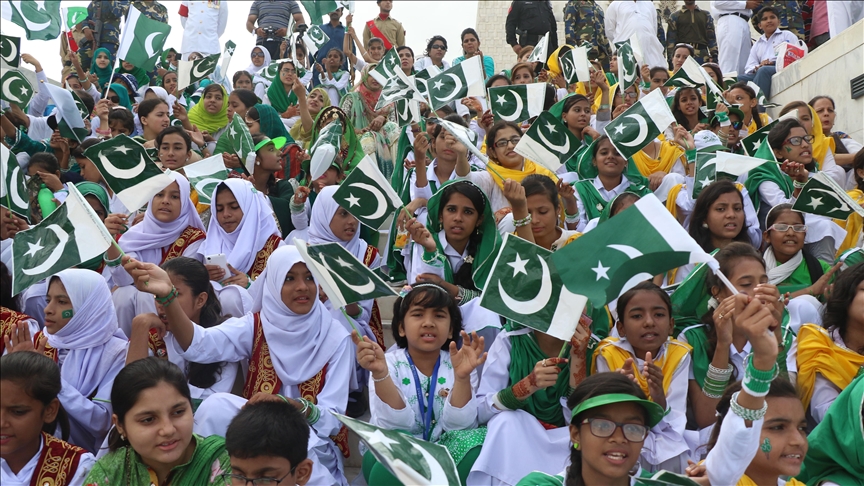
Pakistan Celebrates Its 78th Independence Anniversary
Pakistan Celebrates Its 78th Independence Anniversary
Pakistan is celebrating the 78th anniversary of its independence, which it gained from the United Kingdom on August 14, 1947.
Pakistan’s independence, declared by Muhammad Ali Jinnah, is commemorated every year on August 14.
The All India Muslim League (AIML), founded in 1906 in British-ruled India to defend the rights of Muslims, gradually adopted a policy calling for independence.
The AIML, the first Muslim political party in colonial India, continued its political activities in the 1930s under the influence of Pakistan’s national poet Muhammad Iqbal’s vision of a “Muslim state in India.”
During this period, AIML also became a party that organized public rallies and engaged directly with the people.
Reviving the idea of “a separate country for Muslims,” initially voiced by Hindu nationalists, AIML introduced the “two-nation theory,” aiming to establish a separate state in regions of colonial India where Muslims were the majority.
In 1930, Iqbal, in his opening speech at the AIML session in Allahabad, emphasized the necessity of a separate and independent state for Muslims. His speech was described as “the first serious step toward the establishment of Pakistan.”
Decision to Establish an Independent State
Following Iqbal’s speech at the Congress, Rahmat Ali, a member of AIML, proposed the name “Pakistan,” becoming the namesake of the new Muslim country to be established.
In the Indian subcontinent, where both Muslim and Hindu independence movements were active, the British administration began gradually transferring authority to local people by establishing provincial assemblies in 1935.
In the 1937 elections held in the northwestern and eastern provinces (now Bangladesh), Muslims secured majorities in some assemblies, while Hindu-majority assemblies emerged elsewhere. This situation, though not formally defined, contributed to the delineation of the future borders of the two countries.
After the AIML congress held in Lahore from March 22–24, 1940, it was decided that provinces with Muslim majorities would unite under an independent state.
Exhausted by World War II and the independence movements in India, the British administration struggled to maintain control over the region.
In the 1946 provincial elections in British India, AIML achieved a major success by winning nearly 90% of the Muslim vote.
With the political power it gained in Muslim-majority regions, AIML pushed for the establishment of Pakistan during independence negotiations with India.
As a result of the 1946 elections and AIML’s efforts, British India was formally partitioned into Pakistan and India on the night of August 14–15, 1947. At that time, present-day Bangladesh remained within Pakistan as “East Pakistan.”
“August 14 – Pakistan Independence Day”
Since the Night of Power (Laylat al-Qadr) in 1947 coincided with August 14, Pakistan’s Independence Day was officially set as August 14.
In independent Pakistan, which was a member of the British Commonwealth, Muhammad Ali Jinnah, as the leader of AIML, became the first head of state under the title of “Governor-General,” representing the British King.
After 1956, the British King’s role as head of state was legally abolished, and the office of “President of Pakistan” replaced the Governor-General. The first President of Pakistan was Iskander Ali Mirza, the fourth Governor-General.
Pakistan, established in Muslim-majority regions in eastern and western India, was later divided in 1971, when East Pakistan declared independence as Bangladesh.